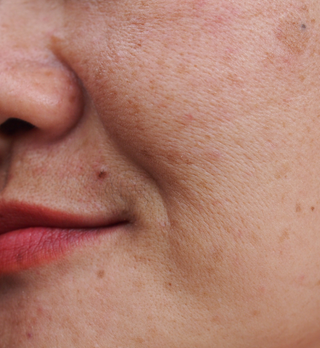RoC Skincare Lab Notes
-

The Truth About Retinol Confirmed By A Dermatologist
Retinol is often praised as a holy grail of a skincare ingredient, but there's a lot of confusion about the best ways to use retinol for maximum effectiveness without irritation....
-

Hyaluronic Acid Skin Benefits
Hydrating, moisturizing and anti-aging, hyaluronic acid should be a part of everyone’s skincare regimen. Read all about what hyaluronic acid is, and why it is good for your skin.
-

Travel Skincare Tips: How to Care for your Skin While Traveling
Long flights, broken sleep and changes in the climate can all have an impact on your skin. Find the best products to use on your travels.
-

HOW TO PREVENT OILY SKIN
Oily skin can be a nuisance, especially since the excess oil can clog pores and cause acne. Read on to discover our tips for banishing oily skin.
-

HOW TO GET RID OF DARK SPOTS ON YOUR FACE
In most cases, dark spots on the skin are harmless, but they can lead to insecurities. Read on to find out how to prevent them, as well as our tips...
-

WHAT CAUSES DRY SKIN?
While we may all experience dry skin during our lives, some people are more prone than others. If this resonates, then find out what you can do to prevent and...
-

What is SPF?
Find out the benefits of SPF and discover how it works to protect your skin from UV rays. Our step-by-step skincare routine will help you to keep your skin safe no matter the season.
-

WHAT DOES SERUM DO FOR YOUR FACE?
Learn more about the key benefits of using a serum as part of your daily routine, as well as differentiating between the types of serum available and how they work.
-

HOW TO APPLY FACE SERUM
Discover the benefits of introducing a serum into your everyday skincare routine along with tips on how to apply your facial serum for the best results.
-

HOW TO GET GLOWING SKIN
A natural, radiant glow is one of the biggest indicators that your skin is healthy. Learn more about the benefits of vitamin C and help your skin to glow.











